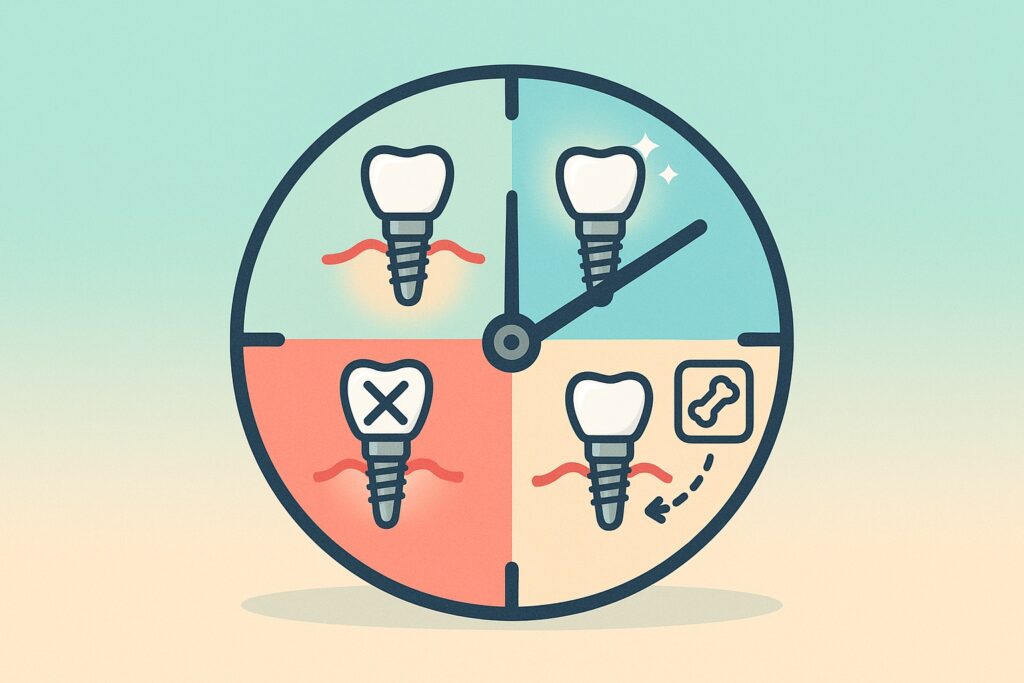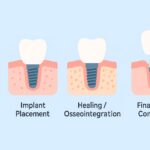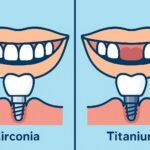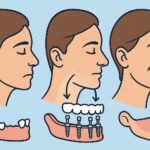Many people who lose teeth later in life wonder if they’ve missed their chance to get dental implants. Since implants require surgery and a strong foundation in the jawbone, age is often seen as a barrier. The truth is, there’s no strict age limit that automatically disqualifies someone from treatment. What matters more is bone density, oral health, and overall medical condition. For many seniors, dental implants remain one of the most reliable ways to restore function, comfort, and confidence.
Understanding Dental Implants
A dental implant is a titanium post that is surgically placed into the jawbone to act as a replacement for a missing tooth root. Once healed, it fuses with the bone through a process called osseointegration, creating a stable base for a crown, bridge, or denture.
Unlike dentures that sit on the gums or bridges that rely on surrounding teeth, implants integrate directly with the bone. This makes them strong, durable, and capable of lasting decades with proper care. They also help preserve jawbone structure, preventing the bone loss that usually occurs after tooth loss.
Is There an Age Limit for Dental Implants?
There is no official upper age limit for getting dental implants. People well into their 70s, 80s, and even 90s have successfully received implants when they were healthy enough for the procedure. Age itself does not determine candidacy; instead, the focus is on whether the patient can heal properly and support the implant long-term.
The misconception that older adults are “too old” for implants often comes from concerns about bone loss or slower healing. While these can be factors, they are not automatically disqualifying. With modern techniques such as bone grafting and advanced implant designs, many older patients remain excellent candidates.
Factors That Matter More Than Age
Bone Density and Jaw Health
A strong jawbone is essential for holding an implant securely. After tooth loss, bone naturally shrinks over time. If too much bone is lost, a graft may be needed to rebuild it before implant placement. Dentists evaluate bone density with X-rays or 3D scans to decide if the jaw can support implants.
Overall Health Conditions
Chronic health issues can affect healing and implant success. Conditions like uncontrolled diabetes, severe heart disease, or weakened immune systems may increase the risk of complications. Certain medications, especially those that affect bone health, also need to be considered. However, many patients with managed conditions still qualify for treatment.
Lifestyle Habits
Habits such as smoking and poor oral hygiene reduce the chances of a successful implant. Smoking, in particular, interferes with bone healing and increases the risk of implant failure. Good dental care routines and a healthy lifestyle play a much bigger role than age in long-term success.
When Dental Implants May Not Be Recommended
Dental implants are highly successful, but there are situations where they may not be the best choice.
- Severe Bone Loss Without Grafting Options
If the jawbone has deteriorated significantly and bone grafting is not possible or would not be effective, implants may not have the support they need. - Untreated Gum Disease or Oral Infections
Active periodontal disease or infections in the mouth can weaken the surrounding tissues and make implant placement unsafe until properly treated. - Medical Conditions That Prevent Surgery
Patients with certain uncontrolled health conditions, such as advanced heart disease or severe immune system disorders, may face too many risks during implant surgery. In such cases, dentists often recommend safer alternatives.
Alternatives If Dental Implants Aren’t an Option
- Dentures
Full or partial dentures rest on the gums and are a common solution when implants aren’t possible. While they don’t provide the same stability, modern designs are more comfortable and natural-looking than in the past. - Dental Bridges
A bridge uses the neighboring teeth for support to replace one or more missing teeth. This option can restore function but requires reshaping the supporting teeth. - Mini Dental Implants
These are smaller in diameter than standard implants and may be used when bone density is limited. They can sometimes stabilize dentures and provide more comfort than traditional removable options.
Conclusion
Being older does not mean it’s too late to get dental implants. Most people are eligible as long as they have adequate bone support, good oral health, and stable overall health. Instead of focusing on age, dentists look at healing ability, medical conditions, and lifestyle habits when deciding if implants are suitable. For those who cannot undergo the procedure, alternative treatments like bridges, dentures, or mini implants still provide functional and aesthetic solutions. The best way to know for sure is to consult with a dental professional who can evaluate individual needs and recommend the safest path to restoring a healthy smile.






